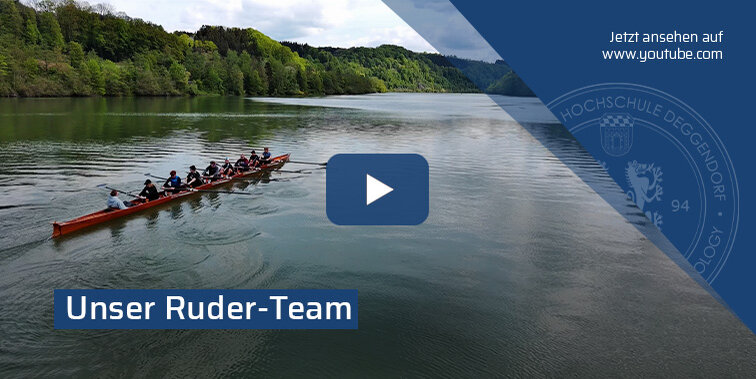do you love challenges?
gain practical skills and a creative mindset for your future
#count%
of all DIT graduates
will find a job
within 2 months

turn your passion into your profession!
In the Bachelor of Science degree programme in Applied Sports Science with a focus on training and health, you look at sport and exercise from a health, scientific and social perspective.
As an interdisciplinary subject, the programme includes psychology, nutrition, anatomy, sports management and communication. Studying sports science means understanding the areas of training theory, sports medicine and health sciences.
You pass on this knowledge when you train sports enthusiasts or treat the ill and injured in rehab. You can acquire various additional qualifications during your studies, such as training to become a swimming instructor, an A-licence fitness trainer or gaining a sailing licence. Become familiar with 40 types of sports, complete several internships and practise intensive sport during your studies so that you are proficient about physical activity from different perspectives in your professional life.
Your advantages at a glance:
- Study-integrated internships in regional sports clubs in the 1st to 4th semester
- Vocational orientation internships in the 5th and 6th semester
- High proportion of sports practice (teaching of core, adventure and therapeutic sports)
- In-depth module on high-performance and elite sports
- Sports science labs and training room are on campus
- Cooperation in regional and national sports events
- Numerous cooperation partners from sport and health
- Cooperation and student exchange with the Swiss Sports University in Magglingen (EHSM)
- Excellent job opportunities in sport and health
fact sheet applied sports science
Degree: Bachelor of Science (B.Sc.)
Duration: 7 semesters (3.5 years)
ECTS points: 210
Start: October (winter semester)
Location: Deggendorf
Taught in: German
Application period: 15 April - 15 July
Admission requirements:
- General German university entrance qualification, or please check your eligibilty at the DAAD if you own an international qualification
- Passed DIT aptitude test (subject to approval by the Bavarian State Ministry of Science and Culture)
- Medical certificate of fitness for unrestricted sport
- Language requirements
Information about the assessment test 2024:
Registration deadline: 7 July 2025 (Deadline for registration, submission of the sports medical certificate and the golden sports badge)
Multiple Choice test: 11 July 2025 at 5 pm (online).
Sports practical test: 12 July 2025 at 10 am.
Catch-up date for practical test: 8 September 2025 at 10 am.
Catch-up date for multiple choice test: 9 September 2025 at 10 am.
- Registration for the fitness assessment procedure is possible via e-mail to patricia.sammer@th-deg.de. When registering via e-mail, please attach the test card for the Golden Sports Badge, with gold in all 4 disciplines, as well as the sports doctor's certificate of unrestricted fitness for sport.
- Registration for the recruitment assessment procedure is not an application for the degree programme; this must be completed additionally! Information on how to apply can be found on our homepage under Application.
- The aptitude test consists of a multiple choice test and a practical sports test. The multiple choice test will take place online on 11 July 2025 at 5 pm. The practical part will take place on 12 July 2025 at 10 am in the triple sports hall (Dreifachturnhalle) of the Comenius Gymnasium in Deggendorf.
- Meeting point and attendance check are 20 minutes before the test.
- On the day of the sports aptitude test, an identification card/passport must be presented.
- Information about the procedure and the performances to be achieved for the aptitude test can be found in this document: Assessment procedure B.Sc. Applied Sports Science
Prerequisites: Knowledge of basic biological subjects would be an advantage
Fees:
- No tuition fees, only student union fee
- International students from non-EU/EEA countries are required to pay service fees for each semester. Click here to read about our service fees.
Enquiries:
- Course enquiries: asw-info@th-deg.de
- General enquiries about studying at DIT: welcome@th-deg.de | prospective student advisors
career prospects
Study aims:
- The aquirement of comprehensive methodical, technical and practical skills in sports science that enable graduates to overcome challenges, to take on management functions in institutions, bodies and organisations of the health care system, sport and health economy in a well-founded and responsible manner,
- The ability to critically review and expand one's own intervention spectrum on the basis of evidence-based knowledge, to understand it on a scientific basis and to use it in a differentiated manner
- The aquirement of social and social-educative skills as well as cooperation skills that allow graduates to act confidently in a complex, multi-professional and intercultural environment, to act competently in compliance with the law.
Potential fields of professional work:
- Sports organisations
- Sports science activities at educational institutions, associations and clubs
- Performance diagnostics in sport and fitness
- Trainer activities (mass sports, health sports, competitive sports)
- Activities in the field of sports and association management
- Teaching activities in adult education
- Counselling and health management
- Preventive health management in companies and health insurance funds
subject overview
Overview of lectures and courses, SWS (Semesterwochenstunden = weekly hours/semester) and ECTS (European Credit Transfer and Accumulation System) in the Bachelor's degree Applied Sports Science.
Therapy and Health Sports
| 1. Semester | SWS | ECTS |
| Support and Movement Apparatus | 2 | 2,5 |
| Internal Organs, Vascular System | 2 | 2,5 |
| Basics of Training Theory | 4 | 5 |
| Basics of Physiology | 2 | 2,5 |
| Specific Physiology 1 | 2 | 2,5 |
| Biochemistry | 2 | 2,5 |
| Biophysics | 2 | 2,5 |
| Communication Interdisciplinary work | 4 | 5 |
| Sports Practice | 4 | 5 |
| 2. Semester | SWS | ECTS |
| Neuroanatomy | 2 | 2,5 |
| Functional Anatomy and Arthrokinematics | 4 | 5 |
| Biomechanics | 4 | 5 |
| Neurophysiology | 2 | 2,5 |
| Evidence-based Work Medical Statistics | 4 | 5 |
| Sports Practice | 4 | 5 |
| 3. Semester | SWS | ECTS |
| Methodology and Didactics of Training, History of Sport | 2 | 2,5 |
| Adaptation of the Organ System | 4 | 5 |
| Basics of Techniques and Tactics | 2 | 2,5 |
| Technical English | 4 | 5 |
| Sports Practice | 8 | 5 |
| Biocybernetics | 4 | 5 |
| 4. Semester | SWS | ECTS |
| Therapy and Health Sports | 4 | 5 |
| Gender Issues in Sport, Children and Youth Sport | 4 | 5 |
| Sports Practice | 8 | 5 |
| Special Sports Practice, Competitive and Top-class Sport | 8 | 10 |
| 5. Semester | SWS | ECTS |
| Sports Injuries, Sports Damages | 4 | 5 |
| Anti-doping, Ethics and Fairness in Sport | 4 | 5 |
| General Behavioural Psychology | 2 | 2,5 |
| Sports Psychology, Teamleading | 2 | 2,5 |
| Basics of Prevention and Health Promotion | 4 | 5 |
| Sports Practice | 4 | 2,5 |
| Applied Therapeutic Sports | 4 | 2,5 |
| 6. Semester | SWS | ECTS |
| Sports and Competition Nutrition, Eating disorders in sports | 4 | 5 |
| Sports Equipment Technology | 4 | 5 |
| Evidence-based Work in Training Science | 4 | 5 |
| Therapy Sport | 4 | 5 |
| Test Methods | 2 | 2,5 |
| Sport-related Illnesses | 2 | 2,5 |
| 7. Semester | SWS | ECTS |
| Health and Sports Managment | 4 | 5 |
| Stress Monitoring | 1 | 2,5 |
| Performance Diagnostics | 3 | 2,5 |
| Special Strength Training in Health Sports | 4 | 5 |
| Bachelor Thesis | - | 10 |
cooperation partners
During their studies, our sports students complete several study-integrated internships. In the first two years of study, regional club internships accompany their studies, and in the third year of study, 2 full-time internships of 4 weeks each take place with potential employers to explore occupational fields. For this purpose, cooperation agreements are concluded with the internship institutions for the duration of the internships. There are a number of long-term cooperations for the implementation of practical sports courses, field excursions and as partners for theses. A selection of important institutions and organisations in this regard is listed here:
- Swiss Federal Institute of Sport Magglingen (Switzerland)
- Bavarian Cycling Federation
- German Fitness Teachers' Association
- Bavarian State Sports Association
- SwimStars GmbH & Co. KG
- Comenius Grammar School Deggendorf
- St. Michael's Grammar School Metten
- FOS/BOS Passau
- FOS/BOS Altötting
- Cham Vocational School Centre (FOS/BOS Cham)
- Elypso leisure and adventure pool Deggendorf
- Hengersberg municipal swimming pools




